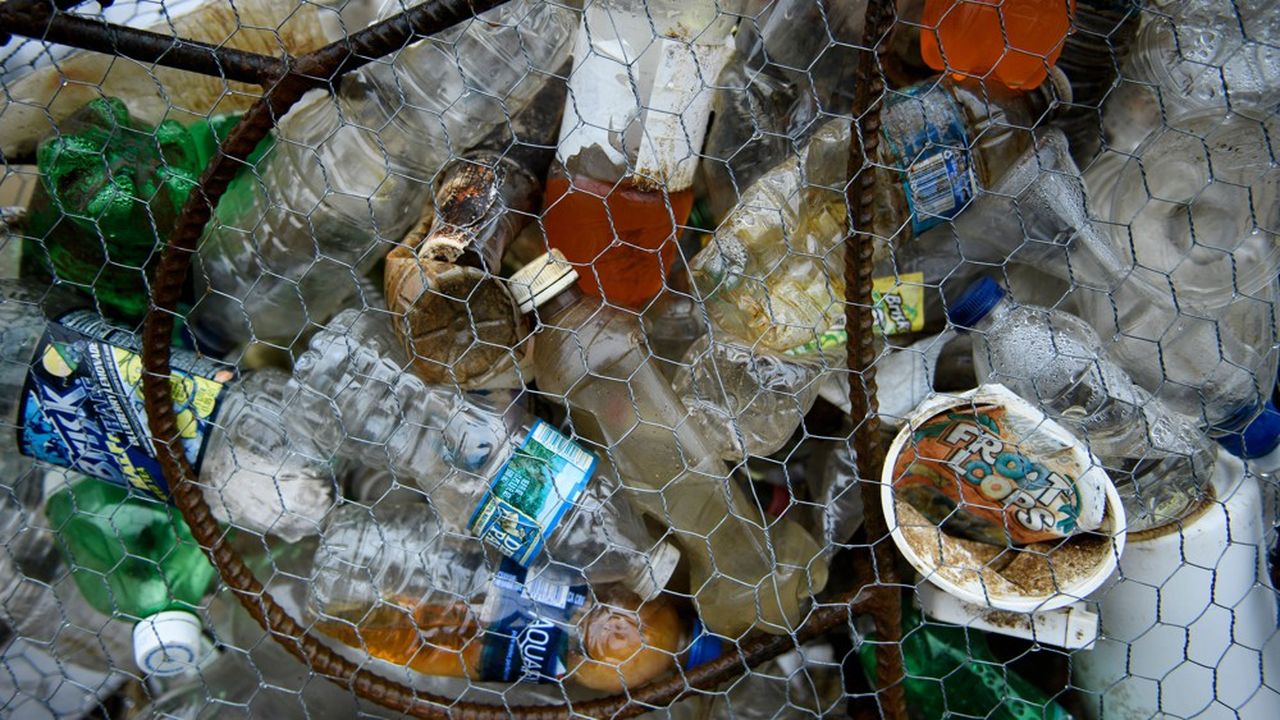Sent October 24, 2022, 8:38 am
We no longer talk about waste but about resources, this is the leitmotif of the recyclable plastic industry. Yet as the recycling rate for plastics is falling in the United States and production is rising, Greenpeace considers the existence of a circular plastics economy to be a “fiction” in a report released Monday. .
According to Greenpeace USA, American homes generated 51 million tons of plastic waste in 2021, of which only 2.4 million tons were recycled. A declining figure, particularly as China stopped accepting plastic waste from the West in 2018, while at the same time recycling some of it. In addition, producer prices for plastics are falling due to a rapidly developing sector.
“Industrial groups and large corporations have pushed to present recycling as a solution,” Lisa Ramsden of Greenpeace USA told AFP. “By doing this, they avoided liability,” she added, citing companies like Coca-Cola, PepsiCo, Unilever and Nestlé.
Too little recycled plastic
The report points out that only two types of plastics are accepted in most of the country’s 375 material recovery centers. The first is polyethylene terephthalate (PET), commonly used for bottles of water and soft drinks, and the second is high-density polyethylene (PE-HD), used for example for shampoo bottles or household products.
But being recyclable in theory doesn’t mean that the products are actually recycled. According to the report, PET and PE-HD had restructuring rates of 20.9% and 10.3%, respectively, both down from the latest Greenpeace USA poll in 2020.
In addition, type 3 to 7 plastics, which include plastic bags, children’s toys, yogurt packaging, have been reprocessed at rates below 5%. Although marked with the symbol indicating possible recycling, these 3 to 7 plastic products are not actually recycled enough to be classified as such by the Federal Trade Commission (FTC).
Competition from new plastics
The Greenpeace study highlights five reasons for the “myth” of plastic recycling: the amount of plastic that makes it difficult to collect it, the diversity of this waste, which makes it “impossible to sort trillions of products”, the harmfulness of recycling plastic processes, without forgetting the impossibility of using recycled plastic in the food industry and the cost of recycling.
“The new plastics are in direct competition with recycled ones” and the former “are much cheaper to produce, for better quality,” the report stresses. Lisa Ramsden called for priority to be given to non-plastic containers that can be reused and for companies to support an international treaty on plastics, the development of which was launched this year by the United Nations. You pointed out that the problem of recycling plastics is unique and does not apply to cardboard or metals.
With AFP


